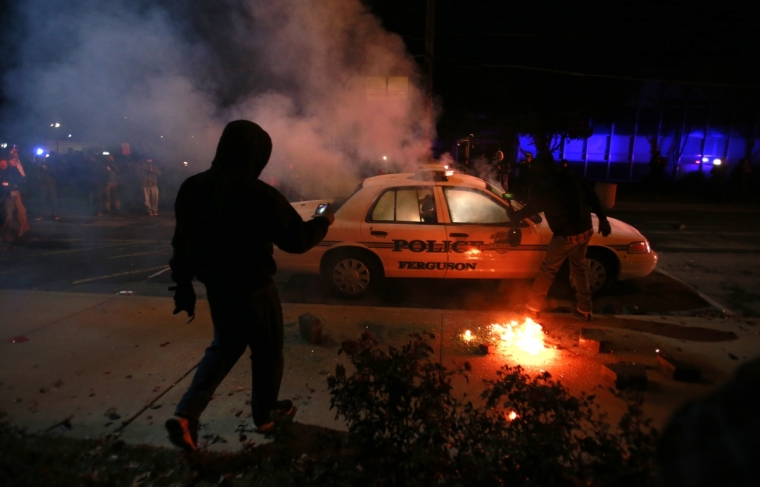'Ten Cracka Commandments' rebuffs white privilege, religion professor says

BETHLEHEM, Pa. (Christian Examiner) – A religion professor at Lehigh University has had enough of white privilege, and so he posted a new set of commandments for white people or, as he puts it, "Crackas."
Christopher Driscoll, who is white and a Ph.D. graduate of Rice University, wrote the "commandments" in association with Gabriel Benn (also known as Asheru) and Kashi Johnson, both hip-hop artists.
[I]t is about time white folks come to terms with a problematic social arrangement that has seen them disproportionately advantaged for far too long.
The three met at a Hip-Hop Symposium in early May where Driscoll was lecturing on white appropriation of rap music, Driscoll's Shades of White Blog said.
Also the author of White Lies: Race and Uncertainty in the Twilight of American Religion, Driscoll writes on his blog that "it is about time white folks come to terms with a problematic social arrangement that has seen them disproportionately advantaged for far too long."
"But on the other hand, as demographics shift in the U.S. and as social and financial power grows more diffuse globally, white Americans are facing both real and imaginary threats to who we've been. And these threats to our identity are coming just as we're learning to address the host of crises we've helped to create for others historically and today," he also wrote.
In the set of commandments, the first takes on the peaceful, social media protest around #AllLivesMatter, which arose after violent protests in Ferguson, Mo., following the death of Michael Brown. Brown was shot and killed after assaulting a police officer and trying to take his weapon.
That movement marched under the social media tag #BlackLivesMatter. Driscoll and his partners respond:
"1. #AllLivesMatter won't matter until #BlackLivesMatter. This commandment is a litmus test and the greatest commandment."
Other commandments promote liberal white guilt, encouraging readers to "always remember that white privilege is real, even if you don't understand it."
They also write that ignorance is a "product of privilege," and while they claim the racially ignorant should be treated with compassion, the authors also claim ignorant white people should be held accountable for their actions.
According to the fourth so-called "Cracka Commandment," white people should never assume they are not being critiqued – even if they have supported black causes or their parents were Civil Rights workers.
"That does not mean you do not have more work to do on yourself, your family, and your community," Driscoll and his cohorts write.
The commandments also claim white people should not love "cultural products" without loving black people. According to the authors, that means those who love football and basketball, or black art, should show it by recognizing black lives matter.
According to Driscoll and his writing partners, the final commandment is:
"10. Never put white fragility ahead of justice. If you are more concerned to argue that you "aren't racist" than you are with racism or with people dying, you're (sic) priorities are skewed. Do you want justice or comfort?"
Because the blog posting of the "Ten Cracka Commandments" comes at the end of the school year, there has been little response from the university community.
However, Campus Reform, which monitors liberal bias at American universities, contacted the university and asked if Driscoll's comments would be tolerated.
According to the watchdog group, the university's director of media relations, Jordan Reese, said Lehigh University is committed to "strongly supporting faculty academic freedom and the free exchange of ideas, theories and philosophies on campus."
"Lehigh believes diversity of thought fuels a healthy exchange of ideas, discussion and debate, contributing to a vibrant intellectual environment in which our students can grow and learn," Reese told Campus Reform.